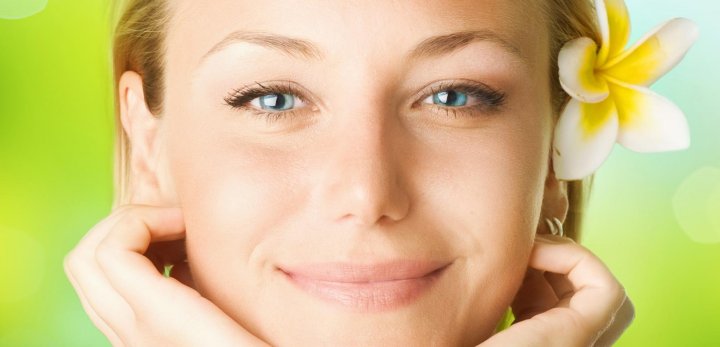Holistic Skin Care Natural Alternatives
by TVance | December 2, 2017 7:25 am
Some people are blessed with naturally good skin which has small pores, even tone and is neither dry nor oily. Others have good skin as children, but when they hit puberty, their skin condition worsens.
 [1]
[1]
Holistic Skin Care Natural Alternatives
Through adulthood, a combination of hormones, bad eating habits, bad sleeping habits and ingestion of substances such as caffeine, nicotine, and alcohol all contribute to worsening skin conditions. Women especially are prone to erratic skin conditions because of falling or rising hormone levels brought on by their menstrual cycle or by perimenopause.
What do doctors say are signs of aging and damaged skin?
Aging and damaged skin usually refers to skin that has uneven skin tone: either it has dark spots or it is red and irritated. The skin is also damaged when it is overly dry, oily, rough or when there is acne. Skin that is wrinkled and sagging may be signs of premature skin aging.
What may be the causes of premature skin aging and damaged skin?
Causes of skin aging and skin damage may be external or internal. External causes are exposure to the ultraviolet rays of the sun such that the skin gets burned. Skin is also damaged by exposure to pollutants such as those found in cosmetics, soaps and cleansers, fuel particulates from vehicle exhaust and factories, and allergens such as pollen, dust and insects bites.
Internal causes are the lack of necessary nutrients, vitamins, and proteins which help maintain the elasticity of the skin. Taking medications and ingesting substances such as alcohol and caffeine damage the skin in the long term. Undiagnosed and untreated allergies, infections or diseases may also cause inflammation which affects the skin. Stress, emotional and psychological distress often affect the hormonal levels and can also affect the skin.
What can be done to prevent skin damage and premature skin aging?
1. Visit a dermatologist for sudden changes in the texture and appearance of the skin. A dermatologist can determine if the skin condition has underlying health causes. Better yet, get a check-up so that health conditions can be identified and treated.
2. Eat healthily. Eat fruits and vegetables which are washed thoroughly and prepared in a sanitary way. Eat minimal beef, pork, and chicken as these are often routinely treated with hormones to make them grow faster and antibiotics to prevent disease. Avoid processed foods as the preservatives accumulate in your bloodstream and are stored in the fatty deposits in the deeper layers of the skin. Eat wholegrain foods as these provide fiber which helps eliminate waste products from the body.
3. Drink more water. Water not only cleanses but it also keeps the skin hydrated and moist. If you lack sufficient water in your body, your lips get chapped. If the lack of water in your body continues, even your skin will feel rough. Avoid alcohol, caffeine and sugary drinks; also avoid smoking. These habits decrease your water supply to the body and they also constrict blood vessels which make for poor blood circulation. Too much caffeine will disturb sleeping cycles while too much sugar in the blood will leave us susceptible to infection.
4. Use less make-up. It is not only make-up but shampoos, soaps, body wash, perfumes, cologne and other products contain harsh chemicals that harm the skin. If you absolutely must use make-up try switching to brands that are free from harsh chemicals.
5. Get more sleep and rest. Sleep was designed to be the time for the body to repair itself. Without sufficient sleep, skin becomes less supple and more prone to wrinkles.
Healthy skin is often a matter of good health as well. It is the end result of healthy food choices and a healthy lifestyle. Good skin is also a good sign of a healthy frame of mind. Keep your skin healthy by keeping your body and your mind healthy.
- [Image]: https://alternativeresourcesdirectory.com/wp-content/uploads/2017/11/Holistic-Skin-Care-Natural-Alternatives.jpg
Source URL: https://alternativeresourcesdirectory.com/news/holistic-skin-care-natural-alternatives